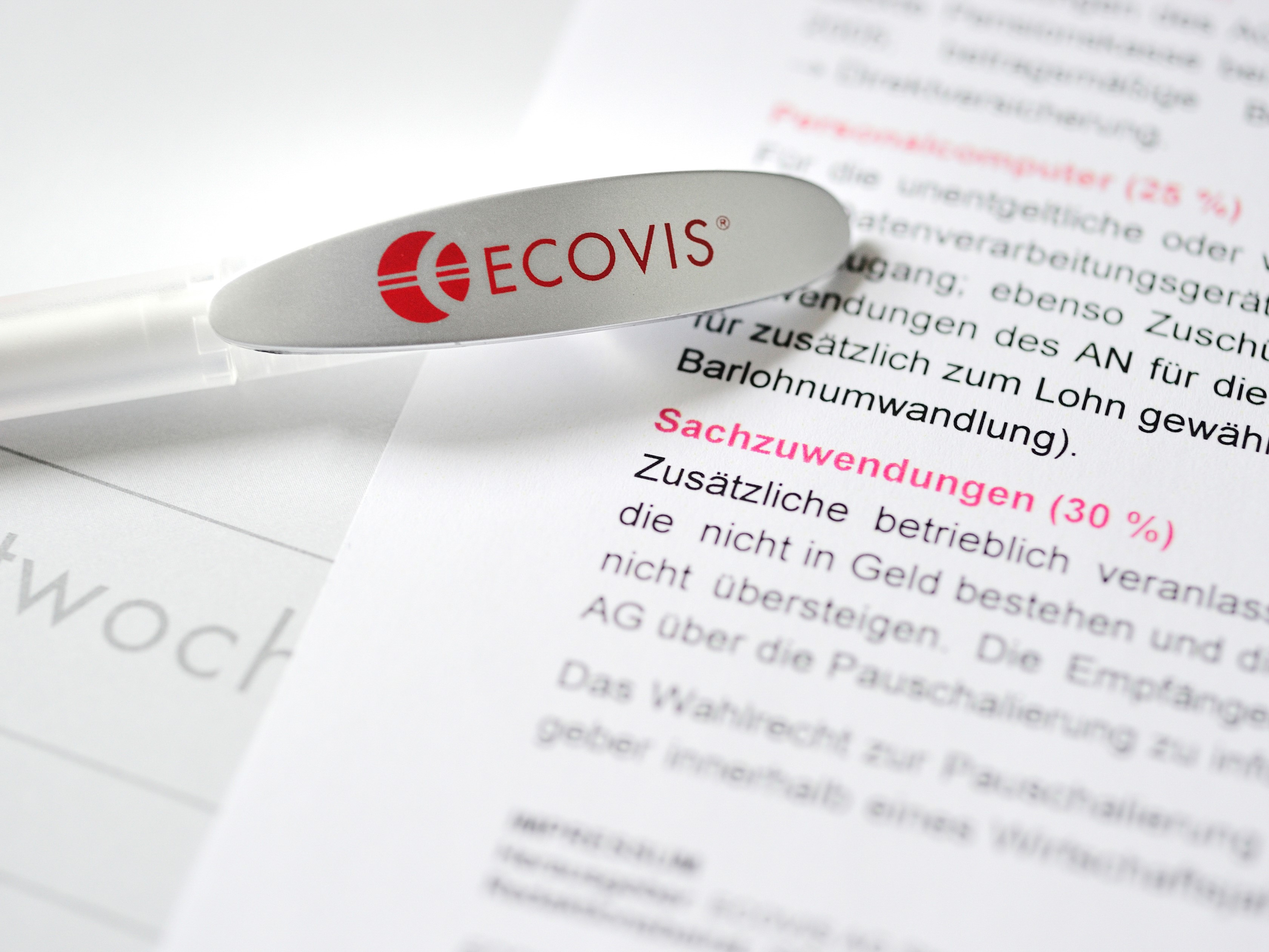Amendment to Consumer Protection Act brings changes to consumer law in 2023
At the beginning of January the new consumer protection rules and especially e-commerce traders brought about by the long-awaited amendment to Act No. 634/1992 Coll., on Consumer Protection as amended ("CPA"), and Act No. 89/2012 Coll., Civil Code as amended ("CC") done by Amendment to Act No. 374/2022 Coll. It is thus imperative that entrepreneurs update their terms and conditions and contractual documentation and have everything legally in order.
A major overhaul has taken place in the context of the Directive (EU) 2019/2161 of the European Parliament and of the Council, the so-called Modernization Directive, amending Council Directive 93/13/EEC and Directives 98/6/EC, 2005/29/EU and 2011/83/EU of the European Parliament and of the Council; Directive 2019/770 of the European Parliament and of the Council on certain aspects of contracts for the provision of digital content and digital services, and Directive 2019/771 of the European Parliament and of the Council on certain aspects of contracts for the sale of goods, with a view to remedying shortcomings in the implementation of earlier Union directives. The novel carries a number of big changes, an overview of which can be found below.
The amendment will hit all traders, sellers, e-shop operators, especially providers of digital content, digital services and goods with a digital element, price comparison operators and online marketplaces, as the amendment introduces a completely new contractual type. In addition to these impacts in the area of e-commerce, the amendment will also affect distance sales of goods and services via the internet, e-mail or telephone, as well as classic stone stores.
Obligation to communicate information to the consumer before the conclusion of the contract in 2023
By entering into a contract between the entrepreneur and the consumer, i.e. a consumer contract, the entrepreneur is obliged to disclose a range of information to the consumer. Entrepreneurs will thus be required to include in their terms and conditions and draft contracts the address details of the registered office, a telephone number and an email address. It is newly introduced as amended section 1811(2) CC obligation to state the total price of the goods or services including all taxes and charges or at least the method of its calculation; the method of payment, the manner and time of delivery or performance and, where applicable, the rules for handling complaints or an indication of the existence of rights arising from the defective performance including, where applicable, the guarantee of quality, after-sales service and their conditions.
Special rules then apply to the conclusion of the contract in a so-called distance way, i.e. in practice most often on the internet or via e-shop, as well as contracts concluded away from business premises. If an entrepreneur enters into a contract with a consumer in this way, they will still communicate details of the price adjustment to the consumer on the basis of automated decision-making, so-called "personalisation of prices", the address of the premises or details of the main characteristics of the goods in accordance with the provisions of section 1820(1) CC. In addition, under the provisions of section 1822 CC, all pre-contractual information provided is now binding: "Details of the contents of the undertaking communicated by the trader to the consumer prior to the conclusion of the contract shall become the content of the contract, unless the parties have expressly agreed otherwise to a particular propriety." Thus, the information communicated by the entrepreneur to the consumer will always be binding.
Failure by the entrepreneur to disclose this information before the conclusion of the contract will then be a new offence under the provisions of section 24(17) CPA. It will be possible to impose a fine of up to 5.000.000 CZK for committing this offence.
Extending prohibited (abusive) arrangements to the consumer
At the same time, the amendment extends the prohibited arrangements in consumer contracts under the provisions of section 1814 CC. The new arrangements are generally referred to as "abusive" They are always arrangements which create a significant imbalance of rights or obligations to the detriment of the consumer contrary to the requirement of fairness, whereby whether the arrangements are abusive will be assessed in the light of the nature of the obligation, the content of the contract and all the circumstances of its conclusion, but also in the light of the arrangements contained in the contract on which the arrangement depends.
Two groups of these abusive (prohibited) arrangements are newly defined:
1) according to section 1814(1) CC that are abusive at all times, e.g. arrangements that exclude or limit the consumer's rights from defective performance or compensation for harm, arrangements that allow the trader to raise the price without the consumer having the right to withdraw from the contract in the event of a substantial price increase, or arrangements that automatically extend the obligation if the end of the deadline for refusing an extension is unreasonably distant from the date on which the extension is due to take place; and
2) according to section 1814(2) CC which are arrangements where there is a rebuttable presumption that they are abusive and thus, in a particular case, it can be determined from circumstances that they are not prohibited. Examples include arrangements that give the entrepreneur the right to terminate the undertaking without cause worthy of special consideration without reasonable notice, or arrangements that exclude or restrict the consumer's right vis-à-vis the entrepreneur in the event of a failure by the entrepreneur to comply.
We thus advise all entrepreneurs to check their terms and conditions and contracts with consumers because, as we can see, the demonstrative list of these prohibited arrangements is comprehensive, and even a breach of these obligations is a new offence under the provisions of section 24(7) CPA, when the commission of this offence can be fined again up to 5.000.000 CZK.
Consumer protection from 'price hikes' before discount action
The amendment adds section 12a CPA. This provision newly expands and tightens the conditions for entrepreneurs to label discounts on products and marketing materials. Discount and discount events after the amendment should look like this.
If an entrepreneur offers a discount that gives the impression of a price reduction, whether marked on the product visually (crossed-out price), by text or information about discounts in flyers, window signs and websites, but also by announcing events such as "Black Friday" or other bulk discount events, he or she is required to provide information about the lowest price in the 30 days before the discount is granted.
In the event of a price reduction, the discount information itself must also include information on the lowest price of the product in the 30 days prior to the introduction of the discount. This information must be directly marked by text, or by other means, but must be sufficiently clearly distinguishable from the "action" price that must be quoted in accordance with section 13(2) of the Act No. 526/1990 Coll., on prices. In this context, the term "the lowest price in the 30 days prior to the discount" may be recommended precisely for the sake of clarity of the consumer information. The introduction of additional pricing information is redundant and can be confusing for consumers and could verge on an unfair trading practice. It is equally advisable to give information about the lowest price of the product in any case in numerical terms.
It can therefore be summarized that in the case of a discount on a product, three pieces of information must be provided. The first information is that the product is subject to a discount and that the discount applies to it. The second information is the current whole price within the meaning of section 1811(2(c)) CC. The third piece of information is the price, which represented the lowest price of the product in the 30 days prior to the discount. The provision of information about the discount amount in the form of a difference, percentage or fraction is not required, nor is any other information about the price.
The specifics of this new arrangement are the distribution between the discount "intermittent" and "gradual" under the provisions of section 12a(1(c)) CPA. In the case of a gradual (continuous) maintained and continuously increased discount without the original discount ending, it is still possible to quote "the lowest price in the 30 days prior to the discount" . It means that it is the trader's responsibility to quote this price, which will be "fixed over time" at the moment preceding the 30 days before discounting begins, i.e. the granting of the first discount.
An example of this gradual discount is, for example, a discount of 20% of the total price of 100 CZK (i.e. 20 CZK) from 10 January to 17 January and the subsequent increase in the discount from 18 January to 25 January to 40% (40 CZK from the original price of 100 CZK). In the case at hand, the lowest price for the last 30 days before the discount is granted will continue to be 100 CZK. However, if the 20% discount mentioned above is not directly tied to the next discount higher than the previous one, but instead on January 18, the product will cost 100 CZK again and then from January 20, the discount will be 40 CZK (i.e. the price of the product is currently 60 CZK) so the discount will be only 25% and the "lowest price in the 30 days before the discount is granted" will be the price on January 18 due to the interruption of the discount. The same interruption effect will be achieved by the trader by reducing the discount.
Exceptions to the new obligation are actions that do not change prices, such as type 2+1 events, for products intended for immediate consumption (such as food or bouquets), according to section 12a(2) of the CPA. Another group of exceptions are "genuinely tailored price discounts" such as those granted to the consumer on special occasions (e.g. birthdays), or discount vouchers for further purchases by the entrepreneur or point collection.
Complaints, withdrawal and liability for defects
The consumer can continue to claim defects, or reproach defects that affect things within 24 months of taking over. A more fundamental change is the extension of the period during which an entrepreneur must prove that a defect in a purchased item occurred only after the consumer has taken it over (i.e. typically by proving that the consumer caused the defect himself). Instead of the previous 6 months, this burden of proof is reversed in favour of the consumer for the first 12 months under the provisions of section 2161(5) CC, which reads as follows: "If the defect becomes apparent within one year of the takeover, the item shall be deemed to have been defective at the time of the takeover, unless the nature of the defect or item precludes it." It means that the very fact that the defect manifested itself only after the takeover does not exclude that the seller is not liable for it.
Moreover, the new defect is that the goods do not have sufficient durability, functionality, compatibility, interoperability and other negotiated characteristics that can reasonably be expected, according to the amended version of section 2161 CC. Thus, the subjective (negotiated) and objective (usual characteristics of a thing of the same kind that the consumer can expect) requirements regarding the conformity of the goods with the contract are newly established. Similarly, this is adapted for things with digital properties, which are redefined by the Civil Code.
Liability for defects is another institute that has seen changes amended. Among the most important changes are the clarification of the wording of statutory liability for defects and clarification of what specific rights from defective performance belong to the consumer. It is determined in what order the consumer can exercise these rights, when under the amended version of section 2169 CC the consumer can: "require delivery of a new item without defect or repair of the item, unless the method of removal chosen is impossible or unreasonably costly compared to the other; this shall be assessed taking into account in particular the significance of the defect, the value that the item would have without defect, and whether the defect can be rectified in the other way without significant difficulty for [the consumer].".
In this context, it is worth recalling the aforementioned contract for the provision of digital content, from the point of view of the law of defective performance – effectively, the digital service will be able to claim or reproach defects throughout its duration, i.e. beyond the statutory warranty period applicable to the sale of goods.
Confirmation button and consumer protection online when shopping online
Another set of changes modified by the amendment are related to an increase in consumer protection in the digital space. The first of these changes is a new obligation at the conclusion of the aforementioned distance contract. The entrepreneur must ensure that the consumer explicitly acknowledges when making an order that he is undertaken to pay. Under the newly inserted provision section 1826a(2) CC, when an order is made using a button or a similar control, must be marked with the words "Order obliging payment" or, for example, "binding order and payment" or other corresponding unambiguous wording. If an entrepreneur fails to comply with this obligation, the contract is void, unless the consumer invokes it. It is generally not recommended to deviate from the wording, as the texting must make it clear that at the touch of a button the consumer undertakes to pay for his order and it is unclear how it will be judged whether others, such as texting "confirm" or "order now" are expressly prohibited.
Further within the aforementioned section 1826a(1) CC stated obligation to notify consumers immediately before making an order about the data according to section 1820(1(a), (e), (o) and (p)) CC, which contain the following information:
1) particulars of the main characteristics of the goods or service
2) the total price and cost of the supply under section 1811(2) CC
3) indication of the duration of the obligation and the terms of termination of the obligation
4) the shortest period for which the consumer's obligations under the contract will last,
In order to improve consumer protection in relation to online and distance sales by other CPA means under the amendment, he defined the term online marketplace, specifically in section 2(2(b)) CPA and introduced an extended duty of information for its operators. According to section 11b CPA in sufficiently in advance before the conclusion of the contract, the consumer must be aware of the obligations that apply to the simultaneous activity of both the operator of the internet marketplace and a third party, and whether the contract is covered by legislation governing the consumer's rights under European law.
Consumers will now be protected from fraudulent assessments and non-transparent purchases on the market place in an online environment. The consumer's decision to buy online is also largely influenced by the evaluation of offers and publicly available product reviews. In order to establish whether the order of offers on the online marketplace has been affected by paid advertising, for example, the trader will now have to indicate the criteria on the basis of which the offers are evaluated, in accordance with section 11b(a) CPA. The retailer is now obliged to tell the customer (consumer) if the reviews posted on its website are actually written authentically by customers who have purchased the goods, in order to prevent false or misleading reviews from being published. Failure to provide information under section 11b CPA is a misdemeanor.
Similarly, when publishing reviews, resellers will have under section 5a(5) CPA the obligation to state which methods it uses to ensure that published reviews actually come from consumers who have used or purchased the product sold.
For the purposes of assessing whether a misleading commercial practice has been used, it is important that the consumer is made aware of the parameters determining the order of the offers submitted.
The amendment of the CPA also prohibits the use of so-called pre-ticked boxes in order to protect consumers in the online environment, which would create an obligation for consumers to pay an additional fee. In the past, there have been cases where customers have been given pre-ticked consent to provide additional services (e.g. extending insurance or packaging products for a fee), or have had complementary products "dropped" into the basket, even if consumers have shown no interest in them when shopping in an e-shop. In those cases, the consumer is not newly bound by the consent thus obtained.
Digital content contract
Another subject of the amendment is the introduction of a new contractual type, namely the contract for the provision of digital content. This provision allows for the introduction of specific conditions for the provision of digital content allowing for better consumer protection than the previous general arrangements. Below are the individual specifics in the points:
Pre-purchase information - As part of the entrepreneur's information obligation to the consumer contained in section 1811(2(i)) CC, the obligation for the entrepreneur to inform the consumer of compatibility and interoperability of digital content with technical and software that is known to the entrepreneur or that can reasonably be expected to be known to him. Terms compatibility and interoperability are defined in Art. 2(10 and 12) of Directive 2019/770a and generally describe the ability of digital elements to achieve full functionality when applied to equipment.
Delivery - Pursuant to section 2389a(2) CC if no performance time is agreed, the provider will make the digital content available to the user without undue delay. In practice, digital content without a tangible medium should be made almost immediately available after registration and after agreeing to the relevant terms and conditions and paying the price or subscription. In the case of disclosure, it is also according to section 2389b(3) CC burden of proof on the provider to prove that digital content has been made available to the user.
Pursuant to section 1824a(2) CC, which was newly added with the amendment, is possible for the consumer to give explicit consent at the conclusion of a contract for the provision of digital content that is not delivered on a tangible medium, to commence performance before the expiry of the withdrawal period. This time limit pursuant to section 1829(3) CC is 14 days, but this consent extinguishes the consumer's right to withdraw from the contract under section 1837(l) CC. In the case of the provision of digital content on a tangible medium, provisions on goods will be similarly used under section 1838 CC.
Obligation to keep content functional - In sections 2389d and 2389e CC, the provider is obliged to make available to the user the latest version of digital content available at the time of conclusion of the contract. This is also linked to the provider's obligation to keep the content free of defects for the agreed period of use of the digital content. As part of this obligation, the provider must secure the necessary updates.
Complaints - The amendment includes an adaptation of the provisions of section 19(3) CPA on complaints when the subject of a commitment is the provision of digital content (including digital content on a tangible medium). The claim must be settled within a reasonable time due to the nature of the digital content. This difference in the claim period according to the subject matter of the undertaking is due to the implementation of Directive 2019/770, according to which it is generally not possible for a fixed period to cover the provision of digital content as well.
Other changes being introduced
Contracting over the phone
Furthermore, within the framework of distance contracts by telephone, there are changes to the tightening conditions that must be met by the entrepreneur in order for the contracts to be binding. Specifically, the entrepreneur must obtain a receipt from the consumer in text form after the offer has been made over the phone and that is without undue delay according to section 1825(2) CC. An example of such confirmation could be clicking consent on a web portal sent via link or SMS, or signing a standard contract in paper form. In the event that the offer is not confirmed, the consumer is not bound to any extent. The law does not specify a specific time limit for granting consent beyond the aforementioned general wording without undue delay. The contract starts after the entrepreneur is served with the acceptance of the offer.
Contracts entered into on doorstep sales
In the case of contracts concluded at an organised sales event, consumer protection is also extended by increasing the withdrawal period without giving a reason from the previous 14 to 30 days according to the newly inserted section 1829a CC. In other cases, the 14-day period remains the distance of the conclusion of contracts.
Instructions for use
There is also a new adjustment for the rules for providing instructions for assembly or installation with the takeover of the item, according to the modification in section 2161(1(c)) CC and section 2161a CC. There remains an obligation to provide guidance to the consumer if necessary in view of the substance of the matter. In paper form, it must only be issued on the consumer's request, otherwise the entrepreneur has the option to provide instructions on another data carrier such as an email, flash drive or CD carrier. But this guide must be stored on a medium, i.e. it is not possible to refer consumers to the entrepreneur's web portal.
For more information, please do not hesitate to contact us at:
JUDr. Mojmír Ježek, Ph.D.
ECOVIS ježek, advokátní kancelář s.r.o.
Betlémské nám. 6
110 00 Prague 1
e-mail: mojmir.jezek@ecovislegal.cz
www.ecovislegal.cz/en
About ECOVIS ježek advokátní kancelář s.r.o.
The Czech law office in Prague ECOVIS ježek practices mainly in the area of Czech commercial law, Czech real estate law, representation at Czech courts, administrative bodies and arbitration courts, as well as Czech finance and banking law, and provides full-fledged advice in all areas, making it a suitable alternative for clients of international law offices. The international dimension of the Czech legal services provided is ensured through past experience and through co-operation with leading legal offices in most European countries, the US, and other jurisdictions. The Czech lawyers of the ECOVIS ježek team have many years of experience from leading international law offices and tax companies, in providing legal advice to multinational corporations, large Czech companies, but also to medium-sized companies and individual clients. For more information, go to www.ecovislegal.cz/en.














